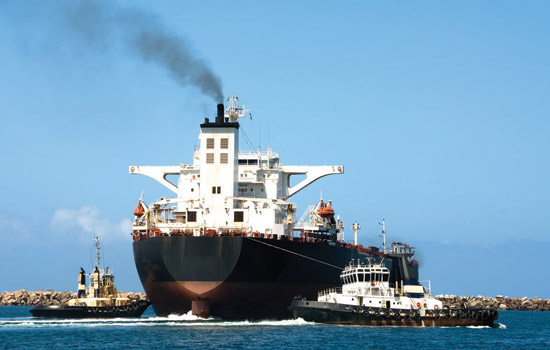Study assesses methods to lower shipping emissions
Multi-university study assesses methods for decreasing black carbon from shipping
RIT and the University of Delaware evaluated the potential cost and effectiveness of technologies aimed at reducing emissions from marine shipping in the Arctic. It is the first technology assessment to directly inform policy decisions on the reduction of black carbon, or soot, being emitted by Arctic shipping. The findings show that the proper combination of reduction technologies could decrease black carbon emissions by 60 percent.
New research led by Rochester Institute of Technology and the University of Delaware evaluates the potential cost and effectiveness of technologies aimed at reducing emissions from marine shipping in the Arctic.
The multi-university effort provides the first technology assessment to directly inform policy decisions on shipping emissions in the Arctic. Findings show that the proper combination of emissions-reduction technologies could reduce emissions of black carbon from Arctic shipping by 60 percent.
“Black carbon, or soot, is one of the most potent types of air pollution in diesel emissions from ships and is a key ‘climate forcer’ in the Arctic because of its high absorption of sunlight both directly and as reflected off of snow and ice,” says James Winebrake, co-author of the study and dean of the College of Liberal Arts at RIT. “Through an analysis of reductions technologies, we hope to better inform policymakers on how to quickly and cost-effectively address this problem.”
The study, “An Assessment of Technologies for Reducing Regional Short-Lived Climate Forcers Emitted by Ships with Implications for Arctic Shipping,” looked at six black carbon emissions reductions technologies, including particulate filters and low sulfur fuel, and evaluated their effectiveness both alone and in combination.
The team, which also included James Corbett, professor of marine science policy at the University of Delaware, and Erin Green of Energy and Environmental Research Associates and Green Energy Consulting, both of Pittsford, N.Y., found that the most cost-effective strategy is the use of a combination of complementary technologies, which can increase emissions reductions without raising costs. The use of a “technology portfolio” could reduce black carbon emissions from ships by about 60 percent, Corbett argues.
“This translates to avoiding emissions corresponding to an estimated 50 million metric tons of carbon dioxide equivalent,” he adds.
Corbett and Winebrake also collaborated on research that found that increased shipping in the Arctic is likely to accelerate climate change and also contributed to the 2009 Arctic Marine Shipping Assessment report by the Arctic Council.














